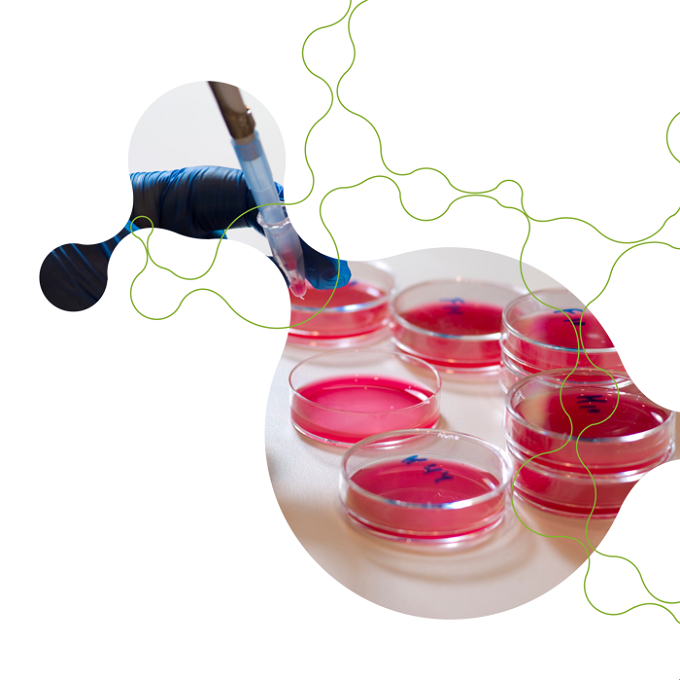

Material Protection
Just as we take care of ourselves every day, antimicrobials can help us to control harmful organisms that can be present on surfaces or in materials or products to make them safer to humans, to extend their shelf life or to improve their performance.
We offer a range of antimicrobials in a variety of industrial applications such as metalworking/functional fluids, plastics, textiles, leather, construction materials, paints, coatings, adhesives, sealants and caulks.
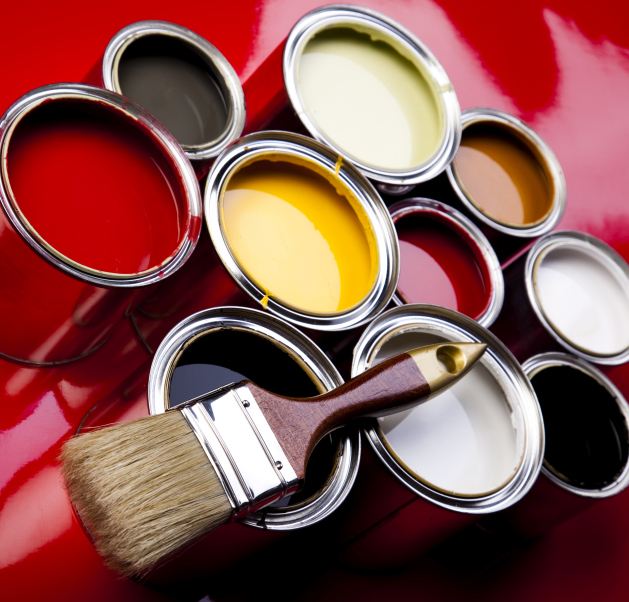
Paints & coatings
Dry-film preservation
Dry paint layers, especially exterior coatings and interior paints for wet areas such as bathrooms and kitchens, are sensitive to fungal deterioration or algae that impact aesthetic properties.
Zinc PYRION™ protects coatings from fungi, bacteria and algae. At the same time, it possesses all other key features of a dry-film preservative including ease of formulation, alkaline stability, thermal stability, low solubility in water and organic solvents, high leaching resistance and ability to deliver long-lasting protection. Zinc PYRION™ can be used as a standalone product or in combination with other dry-film preservatives for a wider range of protection.
In-can preservation
Microorganisms in water-based products, such as paints, can cause bad odours, gassing, discolouration, gelling or liquefaction, emulsion breakdown and pH variation during their storage, transport and distribution before use. This results in quality issues, waste and unnecessary use of additional resources.
Our broad-spectrum solutions, Zinc PYRION™ (very low water solubility) and Sodium PYRION™ (fully water soluble), are increasingly being used as major components of biocide blends for in-can preservation.
Also read how PYRION® enhances the safety and performance of plastics and textile, Antifouling formulations, and paints and coatings.
Questions?
Want to know more about material protection of paints and coatings, other water-based products, or have any questions about PYRION®?
Get in touch with Kurt De Meyer
Plastics & textiles
Textiles and plastics are susceptible to microbial growth, such as bacteria, fungi and algae, which can be found almost everywhere and can quickly multiply, depending on the moisture, nutrient and temperature levels. These microorganisms can compromise product aesthetics, functionality and performance, and may also affect human health.
We offer antimicrobials for textiles and plastics, aiming to provide hygienic properties, as well as to extend product shelf life and thus reduce waste.
Textiles
Microorganisms are all around us. Odours from textiles and footwear are caused by bacteria, while staining is usually the result of fungi and mould. Our PYRION® products offer long-lasting protection against both, resulting in products that stay fresher longer. Also, the low water solubility of Zinc PYRION™, means it is effectively retained within treated products, increasing their durability, or extending their performance.
Plastics
Our broad-spectrum PYRION® antimicrobials can be used to prevent discolouration, staining or disfiguration caused by fungi, or to control the growth of bacteria and algae on surfaces. It offers durable and effective preservation or built-in protection for plastics, adding value to your products.
PYRION® products offer excellent compatibility with co-formulants and thermostability during polymer processing
Also read how PYRION® enhances the safety and performance of plastics and textile, Antifouling formulations, and paints and coatings.
Questions?
Want to know more about material protection of textile and plastics or have any questions about PYRION®?
Get in touch with Kurt De Meyer

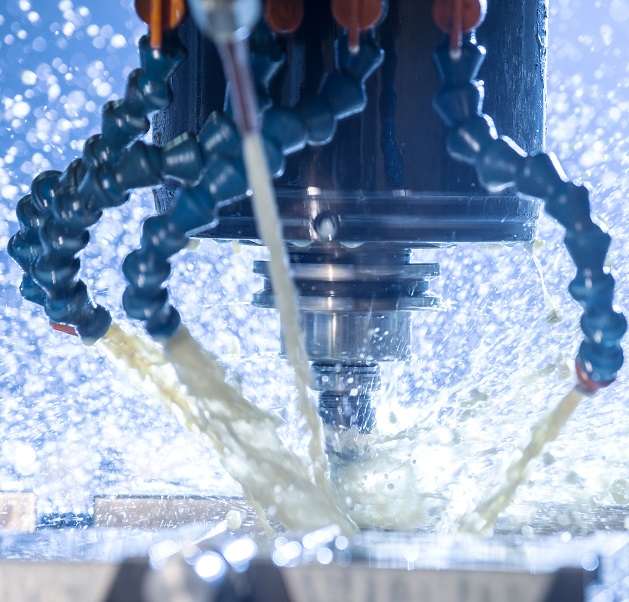
Metalworking fluids
Metalworking fluids are used to cool down and lubricate metal workpieces when being processed and all share a common problem: sensitivity to bacteria and fungi (yeasts and moulds). Not only do they jeopardise hygiene and the health of workers, these microorganisms also primarily cause quality problems.
Fungi grow massively, consuming carbon sources that reside in the functional fluid. They can plug metalworking fluid lines or pipes, slowing down operations and increasing production costs.
A highly effective solution
Sodium PYRION™ is a broad-spectrum industrial biocide which is highly effective against most bacteria, yeasts and moulds commonly found in metalworking fluid systems. Sodium PYRIONTM 40% is 100% water soluble and stable at high pH. This ready-to-use product has excellent compatibility with water-based functional/metalworking fluids.
Also read how PYRION® enhances the safety and performance of plastics and textile, Antifouling formulations, and paints and coatings.
Questions?
Want to know more about material protection of metalworking fluids or have any questions about PYRION®?
Get in touch with Kurt De Meyer
Wood preservation
Wood is a beautiful and sustainable building material, binding ~ 0.8 MT CO2 per cubic metre of sawn timber. However, the timber species most commonly used are susceptible to fungal decay and microbial discoloration when used outdoors or under moist conditions. Fungal colonisation does not only compromise the aesthetics of the infested timber, but also endangers the mechanical integrity of the construction.
Our broad-spectrum fungicide WOCOSEN® has more than 40 years of history in effectively protecting timber from decay and discoloration. WOCOSEN® has a very low water solubility, but is easy to formulate, resulting in very robust and stable water- and solvent-based formulations. When used in colourless, transparent products, WOCOSEN® perfectly preserves the natural look of the treated surface, creating a warm, cosy atmosphere, and it does not alter the hue of coloured formulations.
Questions?
Want to know more about material protection of metalworking fluids or have any questions about WOCOSEN®?
Get in touch with Hans Leithoff
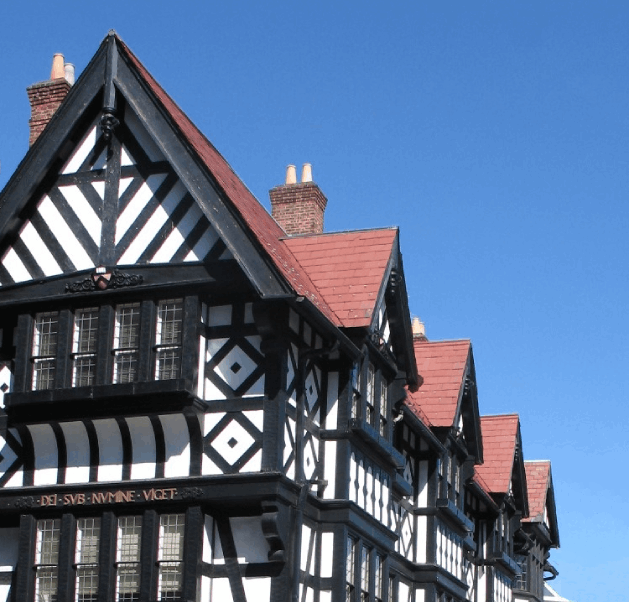
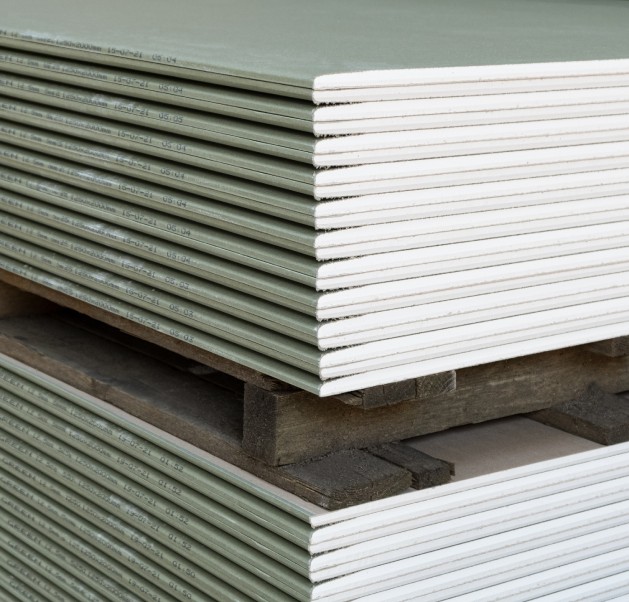
Gypsum wallboard
Drywall, also known as wallboard, plasterboard or gypsum board, is a popular building material made from gypsum and used as an alternative to application of wet plaster to form walls and ceilings.
However, uncontrolled excess moisture in buildings (damp areas like bathroom or kitchen, wet seasons, high relative humidities, leaks, …) is a common problem that can lead to fungal growth, resulting in unpleasant odors, stains, and premature biodeterioration of construction materials.
A study (Andersen et al., Indoor Air, 2017, 27(1):6-12) has shown that fungal species are often already embedded in the wallboard, presumably in the paper/carton cardboard layer surrounding the gypsum core, before the panels reach the construction site. Introducing PYRION® antimicrobials (Zinc PYRION® and Sodium PYRION®) during the manufacturing of wallboard, both in the paper layer as and in the gypsum core, may protect your products during the entire service life in people’s houses, avoiding such unpleasant odors and stains, and protecting residents from exposure to indoor mold.
Questions?
Want to know more about material protection of gypsum wallboards?
Get in touch with Kurt De Meyer [email protected]